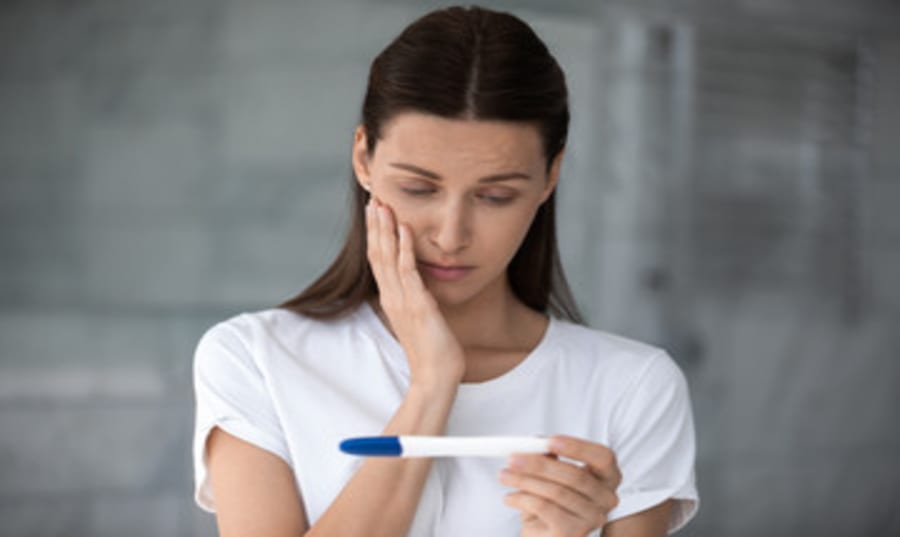If a Pregnancy Test is Negative Today Can it be Positive Tomorrow
- 2 years ago
- 0 Comments
If a Pregnancy Test is Negative Today Can it be Positive Tomorrow
A pregnancy test is designed to detect the presence of the hormone human chorionic gonadotropin (hCG) in the urine or blood. hCG is produced by the cells that form the placenta and is present in the body during pregnancy.
If a pregnancy test is negative today, it is possible that the test was taken too early in the pregnancy to detect hCG in the urine. It is important to follow the instructions on the pregnancy test kit carefully and to wait until at least the first day of a missed period to take the test.
If the test is still negative after the first day of a missed period, it is possible that you are not pregnant. However, if you have irregular periods or are taking certain medications that can affect the accuracy of the test, it may be worth retaking the test a few days later to confirm the result.
It is also possible that the test may be negative due to an error in the testing process, such as using a test that has expired or not following the instructions correctly. In this case, it may be worth retaking the test to see if the result is different.
It is important to remember that home pregnancy tests are not always 100% accurate, and a negative test result does not necessarily mean that you are not pregnant. If you have any concerns about your pregnancy, it is important to speak to your healthcare provider.
Can a Pregnancy Test Change From Negative to Positive?
After getting a negative result on a home pregnancy test, it's fair to conclude that you're not pregnant. However, if you happen to glance back at the test later in the day, you may be surprised to see that a positive line has magically appeared. There are a few reasons why this can happen. However, in most cases, the original reading of the test, "not pregnant," is typically the correct one.
How to find abnormalities during pregnancy?
You can do NIPT Test to find out abnormalities during pregnancy
What Do Faint Pregnancy Test Lines Mean?
If you follow all of the instructions correctly, you may notice a thin, faint test line that appears within a few minutes. It can seem at first that the line is too faint to count, but after 10 minutes, it darkens.
Lower sensitivity test:
Too early in your cycle: If you test earlier than 10 to 12 days past ovulation, the hCG hormone may not be high enough to produce more than a very faint line. The best time to test is after your period is late, or 2 weeks after you ovulated.2
Too much fluid: You can dilute your urine sample if you are urinating too frequently or drinking too many liquids—this is why first-morning urine samples are recommended for pregnancy testing.
How many pregnancy tests should I take?
To answer this question, it's important to first understand how pregnancy tests work. Home pregnancy tests detect human chorionic gonadotropin (hCG), a hormone produced during pregnancy. When a fertilized egg implants into your uterine wall, the placenta begins to grow, releasing hCG into your bloodstream.1,2 Some home pregnancy tests can detect hCG in your urine six days before your missed period but not before. So, if you take a pregnancy test the morning after you have sex, that's too early to get a result.
What should I do if I took two pregnancy tests and got different results?
It's possible to get a negative pregnancy test result followed by a positive result, especially if you tested early. This is because hCG levels rise rapidly in the first few days after implantation.
It's also possible to get a positive test result followed by a negative result. If you use two different pregnancy tests, this could be the result of varying test sensitivity. Wait a few days and test again.
You also may no longer be pregnant. This is called early pregnancy loss, which is not uncommon, affecting around one in four pregnancies. It is often difficult and heartbreaking, though most women can go on to have a healthy pregnancy afterwards. If you think you're experiencing an early pregnancy loss, talk to your healthcare provider as soon as possible. Know that repeated pregnancy loss is uncommon.
| Contact Number: | +91-7901653253 |
| Contact Number Delhi: | (011)40849842 |
| Contact Number Mumbai: | (022) 48937160 |
| Contact Number Chennai: | (044)48137110 |
| Contact Number Kolkata: | (033) 40836441 |
| Contact Number Hyderabad: | (040)49171772 |
| Contact Number Bangalore: | (080)45684079 |
| Contact Number Ahmedabad: | (079)49107674 |
| Contact Number Pune: | (020)71171786 |
| Contact Number Indore: | (0731)4853888 |
| Contact Number Kochi: | (0495)4269777 |






Leave Comment